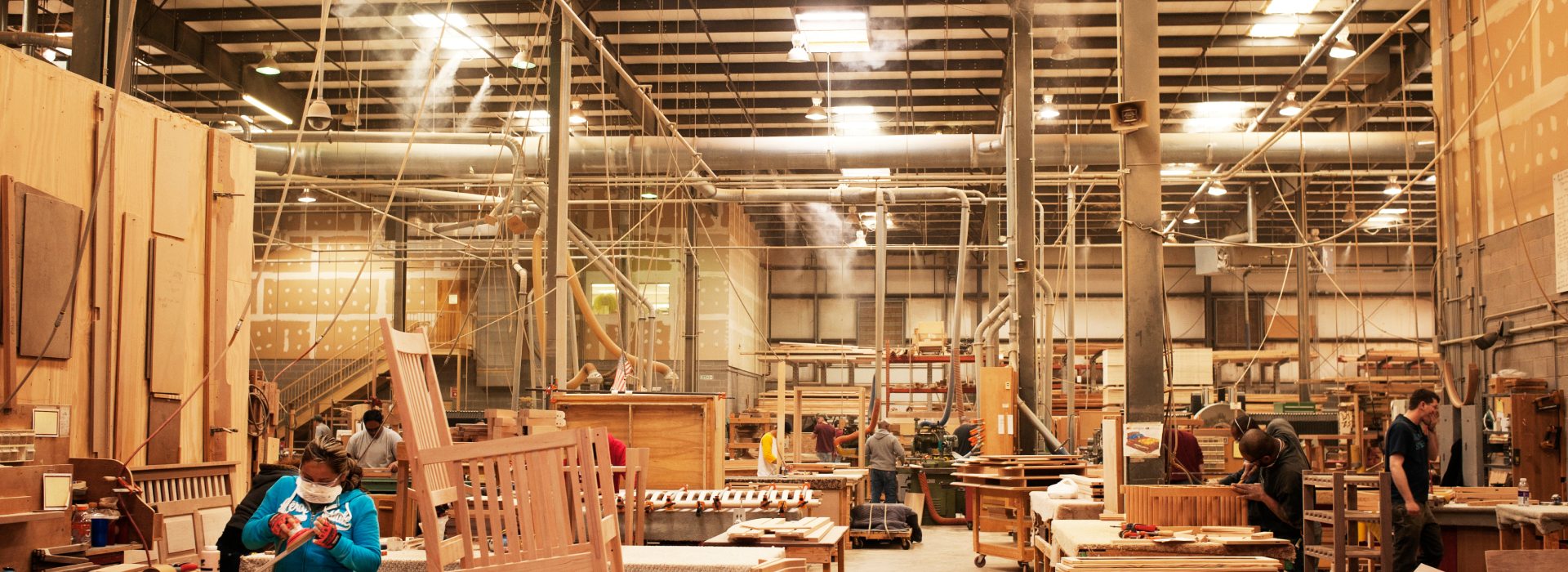Furniture manufacturing is a complex process that involves various stages, from designing and material selection to production and assembly. At each stage, there is a possibility of defects or errors that can compromise the quality of the final product. To ensure that furniture is of high quality, furniture manufacturers implement quality control processes to identify and rectify any issues that may arise during production.
Adequate furniture inspections are crucial in mitigating risks, ensuring high quality, and optimising the use of raw materials during manufacturing. The inspection process should cover various aspects, such as assembly, finish, colour, design, packaging, labelling, and marking. By implementing a rigorous inspection process, manufacturers can ensure their products meet the necessary quality, safety, and durability requirements. They also provide the flexibility to address issues and make corrections before completing the final product. This reduces the likelihood of production failures and post-sale service issues related to defects and helps to verify the quality of materials, manufacturing, and finishing.
In this blog, we will explore what quality control in furniture manufacturing entails, the importance of furniture quality standards, the benefits of furniture QC, how to conduct furniture testing at a laboratory, and the advantages of choosing a reliable quality control partner.
What is Furniture Quality Control?
Quality control in furniture manufacturing ensures the products meet a specific quality standard. It involves a set of measures that the manufacturer implements to ensure that the furniture is of high quality and meets the required specifications. The process begins with the raw materials inspection to the final assembly of the furniture. The goal is to ensure that the products are free of defects, safe, and meet the customer’s expectations.
What are Furniture Quality Standards
Furniture quality standards are sets of guidelines and requirements for furniture manufacturing. They define the required quality level of furniture production and cover aspects such as safety, durability, strength, and environmental impact. These standards aim to ensure that furniture manufacturers produce high-quality furniture that meets the required specifications.
To ensure their furniture products can endure various weather elements, including sun, rain, snow, and wind, manufacturers must consider internationally recognized standards that comprise inspections and testing. Here are some of the standards to keep in mind:
ASTM F1561-03
ASTM F1561-03 is an international standard developed by the American Section of the International Association for Testing Materials (ASTM). It assesses the performance requirements for outdoor plastic chairs for residential and non-residential use.
Outdoor Furniture Standards in Europe
In Europe, outdoor furniture recalls account for a significant 49%. To tackle this issue, two standards have been established for outdoor furniture in the region:
- EN 581-1: This provides general safety requirements for outdoor furniture.
- EN 581-3: This provides mechanical quality control procedures for outdoor tables.
EN 581 Standards
The European Committee for Standardisation (CEN) has developed a set of standards to address all safety requirements for outdoor furniture. The standards include:
- EN 581-1: General safety requirements for outdoor furniture.
- EN 581-2: Mechanical test methods to establish safety for outdoor seating furniture.
- EN 581-3: Mechanical testing procedures for outdoor tables.
- EN 581-4: Durability testing of outdoor furniture when exposed to environmental factors such as rain.
EN 581-3 Revisions
EN 581-3 was updated in January 2017 to clarify testing procedures for various types of outdoor tables, including those with extensions, longer tables, and smaller tables. The revised version also includes requirements for glass table tops to protect parasol holes and prevent metal-to-glass contact.
AFNOR NF D60-300
AFNOR NF D60-300 is a safety standard developed by the French Standardisation Association (AFNOR) for outdoor seating and tables designed for children. The standard outlines safety requirements and test procedures.
UL 962
UL 962 is an international safety standard developed by Underwriters Laboratories (UL), an independent global supply safety solutions company. The standard applies to household and commercial furnishings, including outdoor furniture.
Benefits of Furniture QC
Furniture manufacturing is an industry where quality is paramount. By implementing effective quality control measures, manufacturers can achieve a range of benefits that include:
- Quality Assurance: Implementing quality control measures assures customers that the products they receive are of high quality and free of defects.
- Improved Production Process: Integrating quality control protocols helps identify and rectify defects at an early stage, which leads to an improvement in the production process. As a result, products are manufactured in a more streamlined and efficient manner.
- Reduced Production Costs: Enforcing quality control standards can minimise the chances of manufacturing defective products, ultimately reducing production costs and maximising the return on investment.
- Increased Customer Satisfaction: Furniture products that meet the required quality standards result in higher customer satisfaction and loyalty. This is essential for maintaining a solid reputation and gaining a competitive edge in the industry.
How to Conduct Furniture Testing at a Laboratory?
Furniture testing is a critical aspect of quality control in furniture manufacturing. It helps to identify defects in the furniture and evaluate its performance and compliance with the required quality standards. Here are the steps for conducting lab testing for furniture:
- Sample Collection: Manufacturers collect samples of furniture components that require testing. These samples typically represent the different types of furniture that they produce.
- Testing Methodology: The appropriate testing methodology is then selected based on the type of furniture and the quality criteria being evaluated. This may involve a combination of different tests, including strength testing, durability testing, safety testing, and environmental impact testing.
- Quality Assessment: The samples are then tested for various quality parameters, such as strength, durability, safety, and environmental impact. The results are then evaluated to determine whether the products meet the required quality standards.
- Furniture Inspection Report: Finally, a detailed furniture inspection report is generated that outlines the results of the tests and identifies any defects or issues that need to be addressed.
Selecting a reliable quality control partner is crucial for furniture manufacturers who seek to ensure that their products meet the required quality standards and gain a competitive advantage in the market. By partnering with a trusted quality control provider, manufacturers can get the following advantages:
- Quality assurance, where customers can get furniture that meet the required quality standards
- Experienced professionals who are knowledgeable about the latest furniture testing methodologies
- Customised services that are tailored to the specific needs of each client
- Compliance with international standards ensures that all products comply with international standards and regulations for safety and quality,
Conclusion
Global Inspection Managing (GIM) is a reputable quality control partner in the furniture manufacturing industry with extensive experience working with leading brands in the field. Our team comprises experienced professionals who are proficient in using the latest testing methodologies to guarantee that all furniture meet the necessary quality standards. We provide customised services that cater to the unique requirements of our clients, ensuring compliance with global safety, quality, and environmental impact regulations. We employ state-of-the-art technology for accurate and efficient furniture testing, giving our clients a competitive advantage in the market.
Choosing a reliable quality control partner is vital for furniture manufacturers, and GIM is a top company in this field. With customised services, international standards compliance, cutting-edge technology, and an experienced team, we help furniture manufacturers meet the required quality standards, gain a competitive edge, and succeed in the global market.

